The provisional results of the German election are no surprise. The election was a devastating defeat for the parties of the Scholz coalition.
The SPD suffered its worst result in the history of the FRG. The Greens fell short of their previous high. The FDP will likely not make the 5 percent hurdle.
But it was not a decisive victory for the CDU. The CDU fell short of 30 percent. It was its second worst result in history.
All told, the parties of “old” Federal Republic are likely to score no more than 62 percent of the vote.
The three challengers all have strong roots in the former GDR. The AfD had a good night, but did not break decisively above 20 percent. The real surprise of the night was on the left. Wagenknecht’s movement will likely fall short of 5 percent. But Die Linke made a remarkable comeback, scoring 8.5 percent.
This fragmentation of party political spectrum, should not be confused with a “crisis of democracy”. As was already evident in the European elections this summer, German democracy is alive and kicking. Almost 84 percent turned out to vote, a huge surge relative to 2021.
The question is one of party programs and leadership.
It wasn’t a presidential-style choice. The CDU’s Merz is thought to be more competent than Scholz, but he has very little personal following beyond the CDU itself. Only a quarter of voters find Merz sympatico. But this was not an election in which voters were choosing between the leading candidates. The most popular politician in Germany - the SPD’s Defense Minister Boris Pistorius - wasn’t at the top of anyone’s ticket.
Translation: Top image: Would be a good Chancellor
Translation bottom: (Is up to the job of being Chancellor; Can lead through; Can be trusted; Is sympatico)
Source: Tagesschau
The election was about parties and coalitions. Germany needed a new government. The question was how to compose the new coalition.
The CDU has come out ahead and has recovered somewhat from the 2021 disaster, but is no doubt disappointed not to have broken decisively through 30 percent. Merz, who dallied with the AfD over the migration issue, is anathema to progressive Germans. But the CDU also hits a ceiling on the right. Amongst xenophobic German, memories are long and Angela Merkel and her open door policy of 2015 are blamed for the high number of refugees and asylum claimants.
Translation: Which party has most responsibility for …? (top: the current problems of the country; below: the large number of refugees and asylum seekers.)
Many Germans are concerned about the scale of migration. This is true for 89 percent of AfD voters and 70 percent of Merz’s CDU following. All told, migration is a concern for 55 percent of German voters. It was undoubtedly the most contentious issue of this election.
Translation: I am very concerned that too many foreigners come to Germany.
However, though Merz, the AfD and J.D. Vance want to focus all our attention on migration, the issue was only one amongst many topics at stake in this election. Even if we treat “internal security” and “migration” as the same topic, only one third of the German electorate nominate them as the decisive issues.
Translation: Which issue was most important in deciding your vote? Internal security; Social security; Migration; Economic growth; Environment and climate; Securing Peace; Price hikes.
Translation: The situation in Germany gives rise to confidence/concern.
If the data are to be believed, then this election was about a broader sense of malaise in Germany, not about the single issue of migration. Internal security, social security, migration, economic growth, climate and peace are all double-digit issues.
One issue that does not seem to have played a key role in the election was inflation.
If we use the AfD’s electorate as our barometer, it is true that they are very pessimistic about Germany’s economic situation.
And, at the personal level, AfD voters are most worried that prices are rising so fast that they cannot pay their bills (Top panel: 75%). They worry that they will face money problems in old age (Middle panel: 71%). AfD voters also worry that they will not be able to maintain their standard of living (Bottom panel: 74%).
The AfD scores most strongly amongst Germans whose economic situation is rated as “poor”.
But even if AfD voters are economically and socially stressed, inflation simply was not the key issue in this election. For AfD voters migration was six times more important and internal security five times more important.
Translation: Which topics was most important for your vote? Migration, internal security, economic growth, peace, price hikes.
If the election had been held in 2023, inflation might have been the decisive issue, . But team transitory has been vindicated. Inflation was a transient shock.
What matters now in Germany are not cyclical issues but structural questions. What are at stake are basic strategic issues. What the voters are putting in question is what, for want of better words, one must call the “social contract”.
More updates to follow tomorrow.
**
Thank you for reading Chartbook Newsletter. It is rewarding to write. I love sending it out for free to readers around the world. But it takes a lot of work. What sustains the effort are voluntary subscriptions from paying supporters. If you are enjoying the newsletter and would like to join the group of supporters, click here:




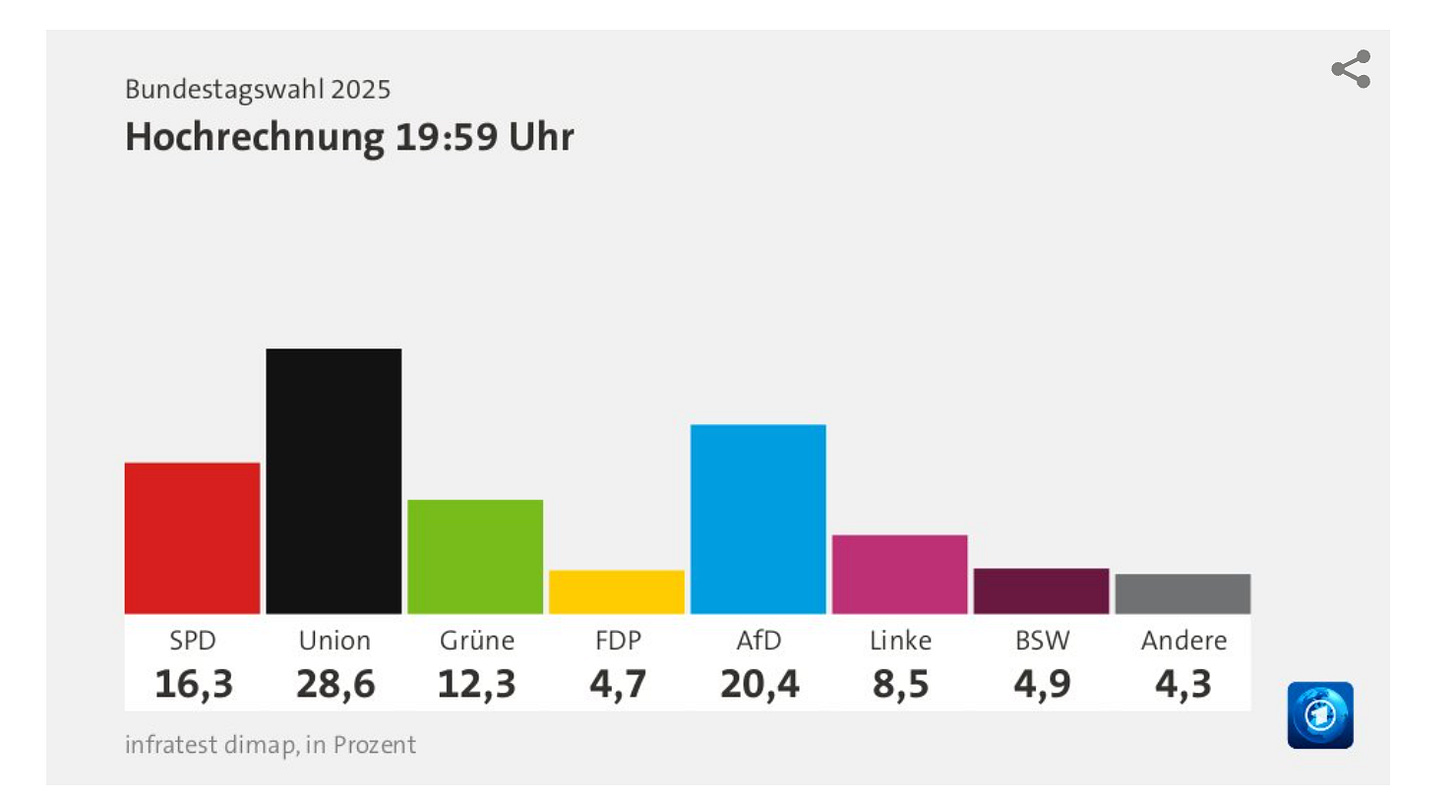
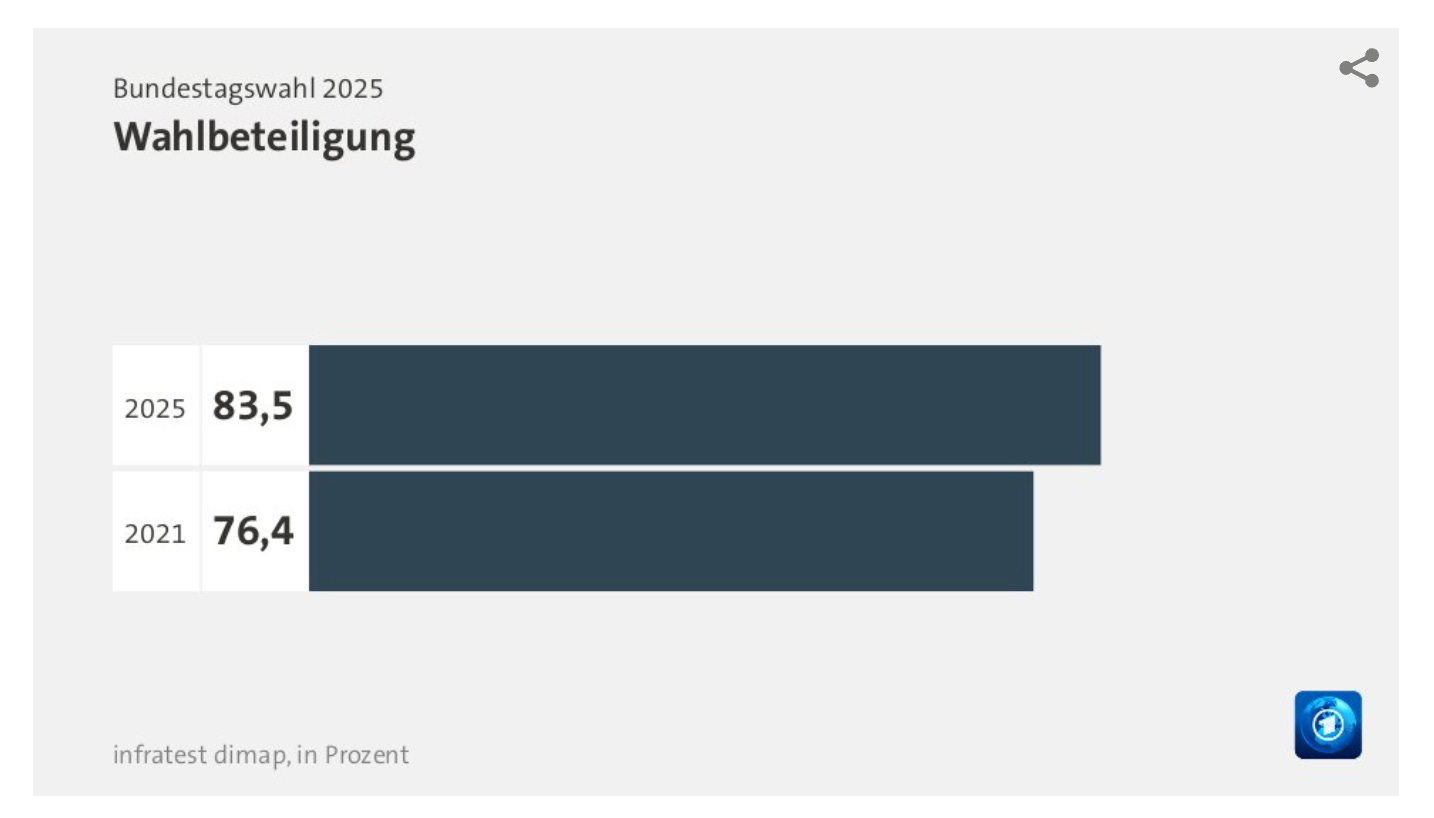
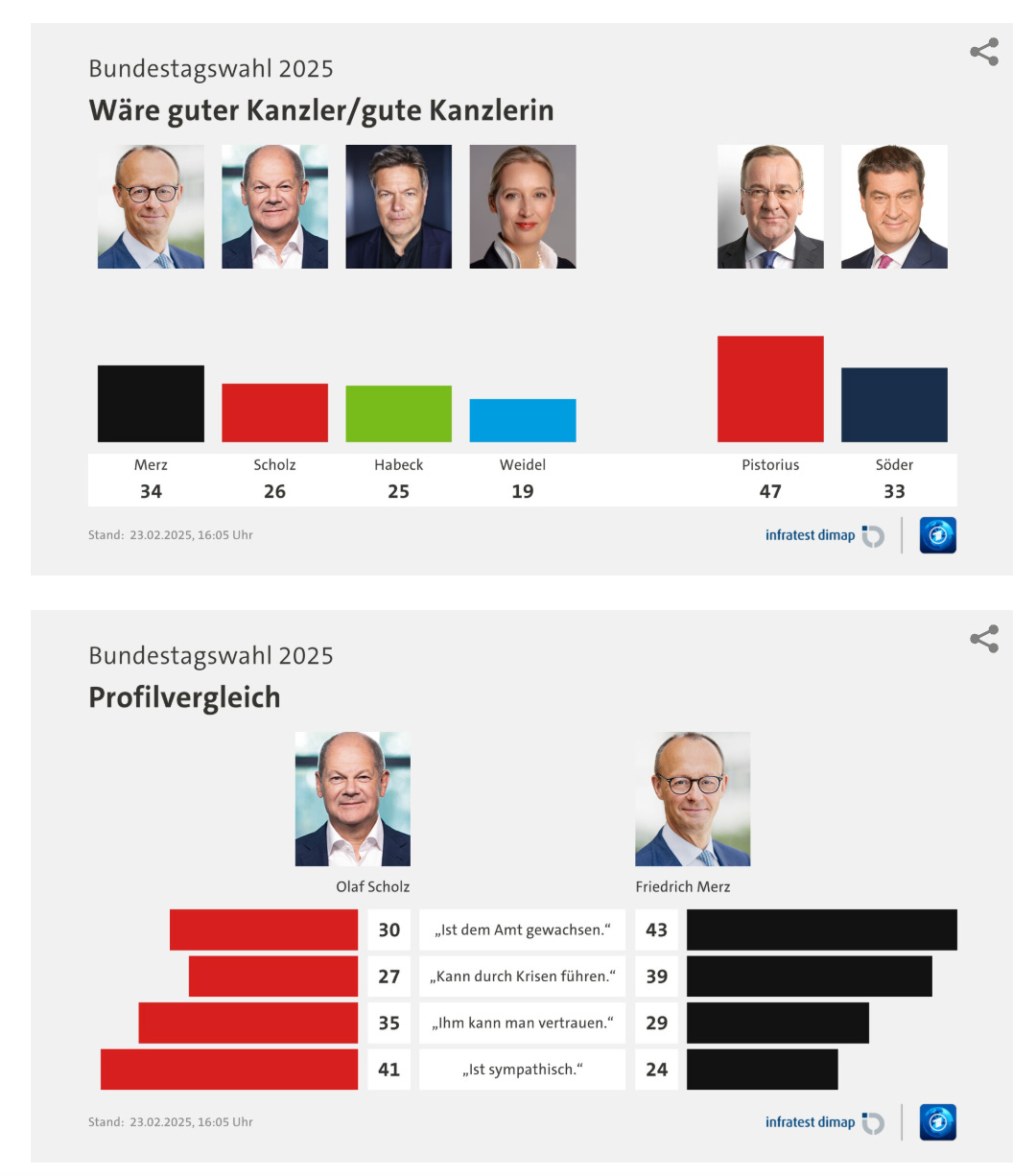
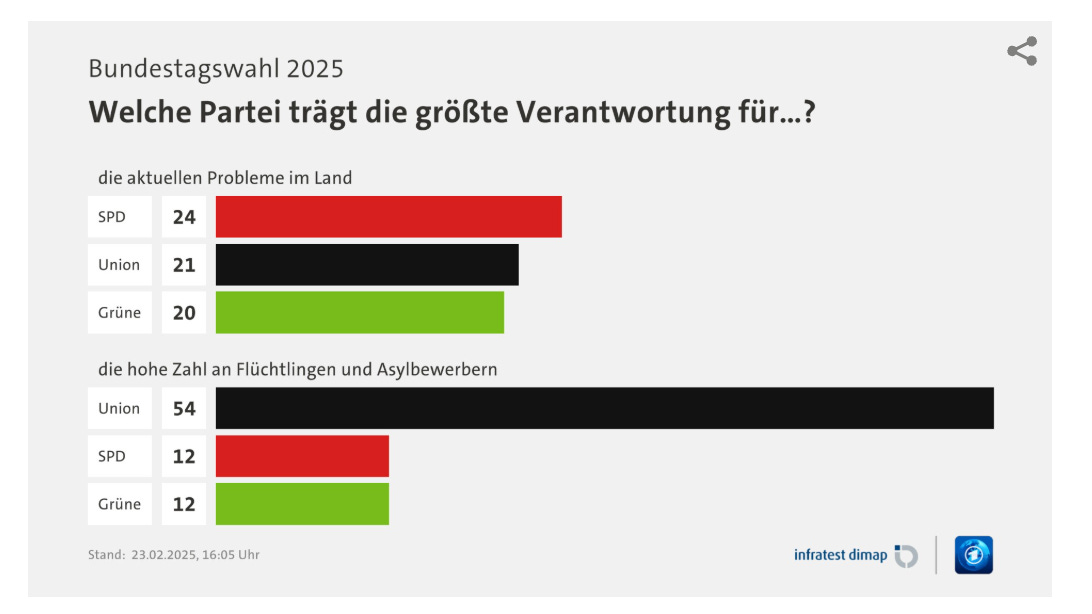
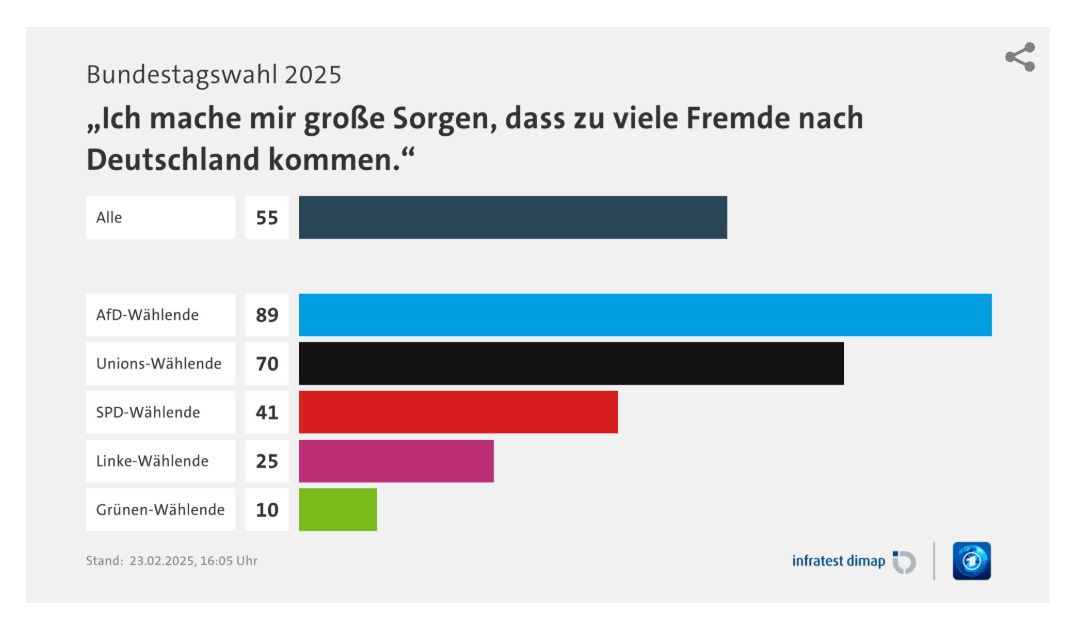
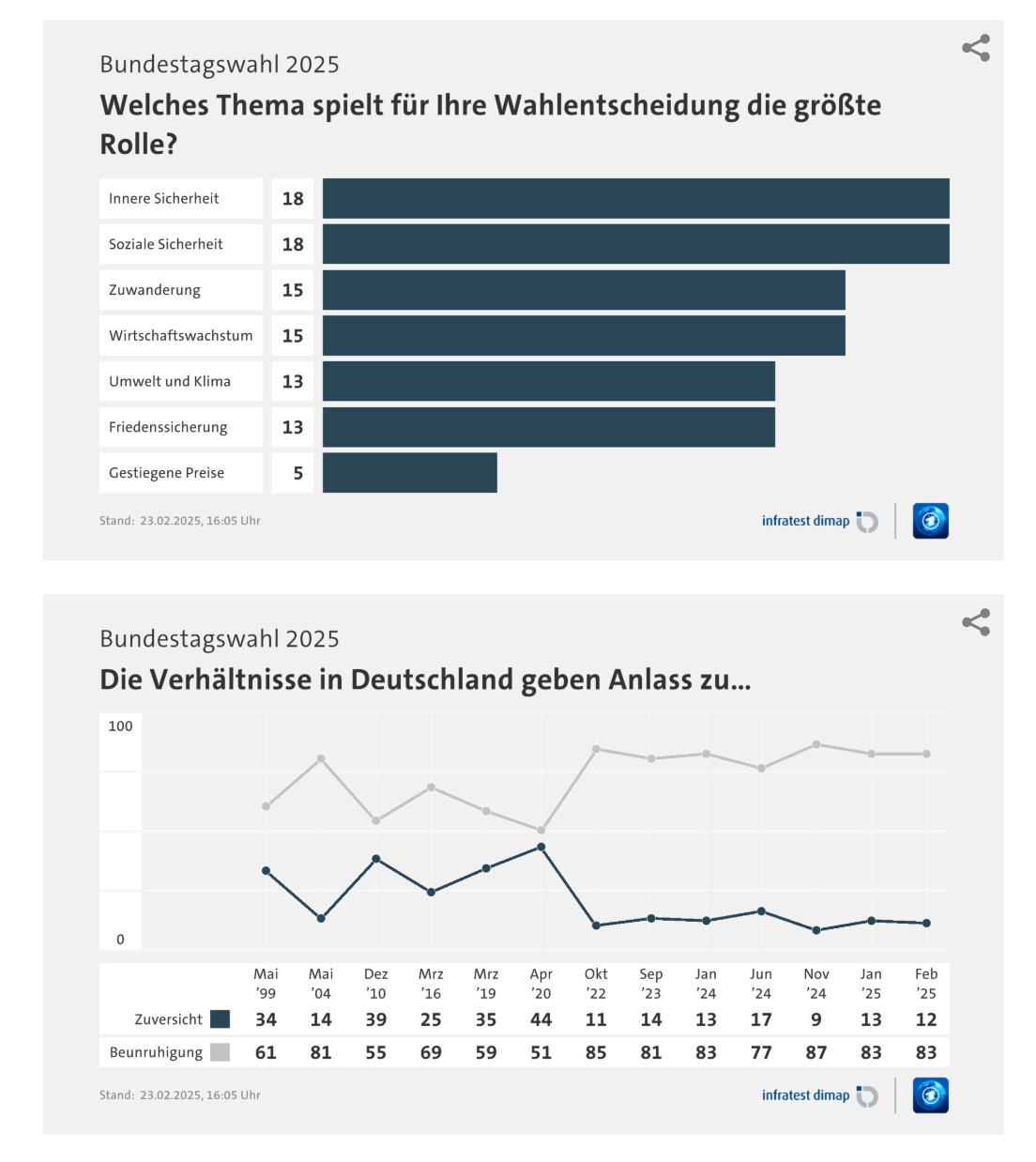
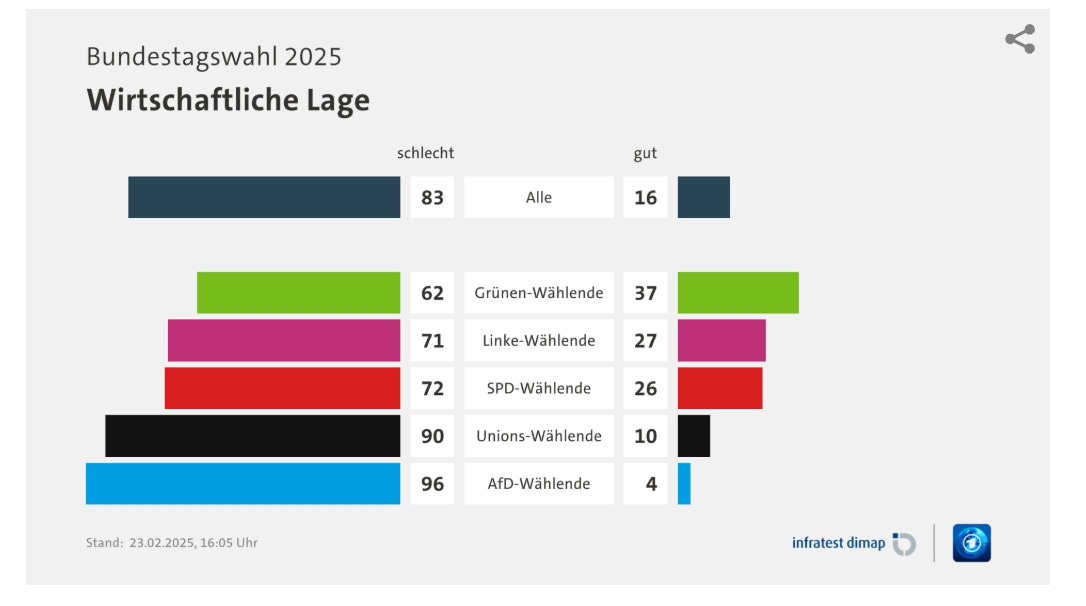

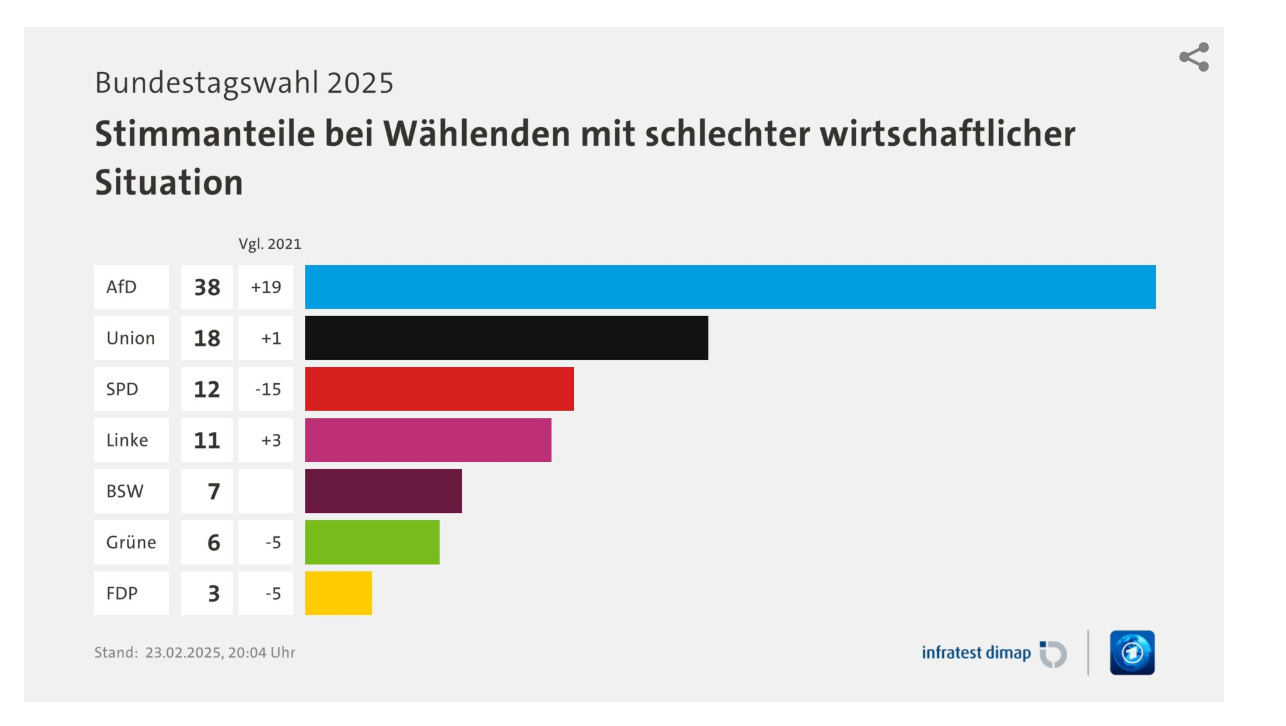
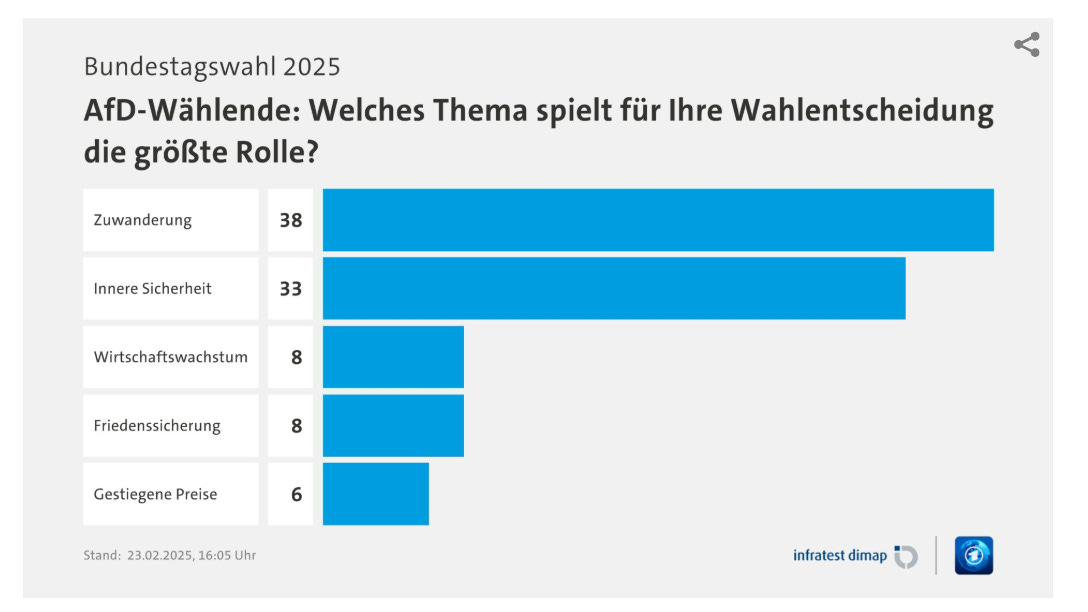
Profoundly important German election. If inflation is no longer the German phobia we thought it had hitherto been, maybe there will be more willingness on the part of the new German government to move away from the prevailing austerity mindset, while simultaneously embracing structural reforms that would create a genuinely supranational fiscal authority. If Merz is to be taken at his word in regard to securing greater independence from Washington, this will almost certainly mean moving toward a "United States of Europe", starting with debt mutualisation (which has been mooted as a means of upping Europe's defense and security needs independent of Washington). I suspect the new coalition will derive more support for this idea, assuming a CDU/SPD coalition. Adding the FDP would make this much more problematic.
How important was Ukraine, the EU and military